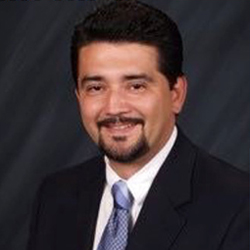The loud whooshing sound of the principal investigator (PI) revolving door isn’t likely to subside anytime soon unless all sides come together to find solutions and common ground, says Gualberto C. Perez, MD, CPI, the CEO, founder, and president of GCP Research.
The so-called “one and done” PI phenomenon—in which a new PI conducts one study and then immediately drops out of the activity—is a serious issue for the clinical trial industry. A 2014 study by the Tufts Center for the Study of Drug Development counted some 40,000 PIs, with half being new to the job. In addition, although the highest turnover rates are observed among the least active investigators, turnover rates have been getting progressively worse among more active investigators.
If anything, the problem will become more acute, Dr. Perez suggested, because current trends in technology and regulation will require PIs to become even better and more engaged in their work. “The expectations [for PIs] are higher, and I know a lot of them are reluctant right now, but times are changing, and people are changing, and they’re starting to accept this,” he said.
Dr. Perez sees some light at the end of the tunnel. For example, he’s an enthusiastic contributor to the Association of Clinical Research Professionals (ACRP) PI Competency Task Force and likes the feedback he’s getting out in the field, especially from relatively younger physicians considering becoming PIs. “I think as we move along you’re going to see a lot of the doctors, the newer doctors, get more involved [as PIs] with technology and telemedicine, and they will be able to take a bigger part and have a bigger role when it comes to running a clinical trial as PI.”
Calling for raising the quality bar across the board in clinical trials, Dr. Perez believes a partnership across a wide spectrum is the solution. “I think what we provide for the PI in terms of training and having a better understanding of the codes, the ICH guidelines, [and research] ethics,” is a job for the “government and private sector combined.”
Last November, ACRP announced it was working with a wide swath of industry to develop competency standards for PIs as part of a broader effort to improve clinical trial quality. “PIs are ultimately accountable for clinical trial conduct, yet they are operating without clear standards and any kind of uniform training,” ACRP Executive Director Jim Kremidas told Outsourcing-Pharma.com. “What they do is frankly too important to leave to a hodgepodge approach.”
Gualberto agrees the stakes are high. “The standard of healthcare is in our hands as researchers right now,” he said.
Author: Michael Causey



